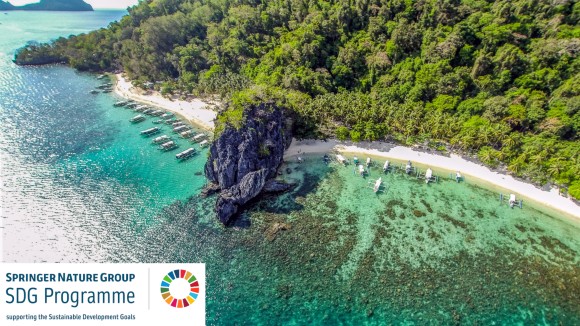Collection
Bridging Land and Seascape Restoration for Ecoscape Recovery
- Submission status
- Closed
- Submission deadline
The escalating loss and degradation of coastal habitats have significant consequences for ocean biodiversity and the health and productivity of coastal communities that depend on these systems. Coastal habitat restoration is now a key tool for regaining these essential functions and co-benefits. Restoration efforts have become an increasingly important focus in recent years to address the significant decline of coastal habitats and achieve environmental sustainability goals, as evidenced in policies such as the United Nations Decade on Ecosystem Restoration and the European Union's Nature Restoration Law. These recent policy initiatives represent critical steps towards restoring degraded ecosystems and, in some cases, a legally binding requirement. Following these calls for policy action, there is also a clear opportunity to ensure that the state of restoration science and practice is ready for implementation at scale.
Despite the urgency, ecosystem restoration initiatives have been dominated by single-species or small-scale initiatives with high rates of failure and few that evaluate cascading site-based ecological and social consequences. On the regional scale, marine spatial management processes seldom incorporate systematic restoration opportunities into plans and resultant policies. These processes make significant investments into conservation planning but often have little focus on the recovery of interconnected habitats and the entire ecosystem. Where marine spatial management processes engage with restoration opportunities, they often lack a connection to terrestrial habitats and related land use planning. As global efforts to restore coastal ecosystems increase, attention is turning to scaling up restoration efforts, necessitating a multi-habitat focus.
We propose to launch a special collection in npj Ocean Sustainability that will establish a widely applicable foundation for scalable approaches that support integrated multi-habitat coastal ecosystem restoration and nature recovery. This theoretical and applied foundation will deliver strong evidence for tangible policy change.
To maximize the potential for ecosystem-based management, we argue that shifting from the current predominant focus on single habitat restoration towards “ecoscape restoration” is needed. We coin the term ecoscape restoration to consider landscapes and seascapes in tandem and at large geographical scales. Ecoscape restoration will enable true ecosystem recovery across multiple habitats and land-sea boundaries, involving offshore, nearshore, coastal, estuarine, watershed, and land activities as needed.
This collection aims to highlight innovative case studies that speak to both active restoration and passive recovery across multiple interconnected habitats. We aim to highlight studies that pay attention to the underlying ecology, consider the social implications, and/or maximize the potential for ecosystem-based management through multi-habitat restoration. Our goal is to reveal innovative examples, challenge current practices, and inspire restoration action in new ways that support the biodiversity, health, and productivity of coastal social-ecological systems. We seek manuscripts that address different dimensions, issues, and solutions related to the restoration of multiple interconnected coastal habitats. We welcome invited original articles, perspective papers, and comments that represent diverse perspectives, geographies, and biomes. Papers can address, but are not limited to:
- Novel multi-habitat restoration case studies across any coastal biomes
- Approaches along a continuum of high-tech to community-based, utilizing diverse sources of knowledge/ ways of knowing and both top-down and bottom-up interventions
- The integration of biocultural restoration and indigenous knowledge in restoration planning
- Fresh perspectives on social and political challenges in ecological restoration approaches
- Conceptual discussions highlighting different pathways to successful coastal ecoscape restoration worldwide
Invited full manuscripts will be due for submission to npj Ocean Sustainability by May 20, 2024 via the npj Ocean Sustainability online submission platform, with earlier submissions encouraged.
This Collection supports and amplifies research related to SDG 14.

Editors
-
Lisa Wedding
School of Geography and the Environment, University of Oxford, UK
-
Tundi Agardy
Sound Seas, MD, USA
-
Stephanie Green
Department of Biological Sciences, University of Alberta, Canada
-
Larry Crowder
Hopkins Marine Station, Stanford University, USA
